Development Interventions & Piloting in Education sector
Support to Special Children (Children with special Needs –CWSN) under Sarva Shiksha Abhiyan/SAMGRA Shiksha
Education is crucial not only for development of the individual but for the society as a whole. The Constitution of India both under the Fundamental Rights as well as Directive Principles of State Policies has provided various provisions to ensure education to the people residing within the contours of the country. The State from time to time has been formulating and implementing laws and schemes with an aim to ensure education to all. However, inclusive education has remained a distant dream as millions of the children belonging to disadvantaged section of Indian society, especially Children with Disabilities/Children with Special Needs continued to face discrimination in access to as well as accessibility in education. The Right to Education Act, 2009 which provided for free and compulsory education was the first novel step towards outlining the fundamental right to education for all children including the child with disabilities. The Centrally sponsored schemes of Sarva Shiksha Abhiyan and Rashatriya Madhyamik Abhiyan have tried to cater to the need of Children with Disabilities/Children with Special Needs however with minimal success. The education system in India has in year 2018 witnessed implementation of new integrated education scheme “Samagra Shiksha Abhiyan” – an amalgamation of Sarva Shiksha Abhiyan, Rashatriya Madhyamik Abhiyan and the Teachers Training Programs. The purpose to implement an integrated education system through a single program has been to facilitate effective and optimal utilization of budgetary allocations and human resources.
With the above background and objectives of our organization, CDECS has been supporting in the state and various districts of the state of Rajasthan namely, Jaipur, Ajmer, Karauli, Sawai Madhopur, Tonk, Hanumangarh, Sriganganagar, Pali, Sikar and Jhunjhunu. The organization has been supporting with the experts expertise in Children With Special Needs (CSWN) having expertise in Mental retardation, Hearing Impairment, Visual Impairment, Cerebral Palsy etc. The experts were placed with rigorous selection process so that the project should meet its objectives. Since beginning, our sole aim to have partnership with Sarva Shiskha Abhiyan/ Samgara Shiksha Abhiyan for an effective programmatic intervention.
Major activities supported by various Block Resource Teachers of CSWN is stated hereunder,
- Exposure visit of CWSN children
- Sports Tournament
- Health Check-up camps
- Corrective surgery
- Escorting CWSN children for surgery and treatments
- Awareness camps
- Facilitate distribution of tricycles
- Facilitate distribution of Hearing aid to needy and affected children
- Moral support to children in schools
- Promote curriculum to children who are visually impaired i.e. through Braille script.
- The team of BRT has provided support in the project districts to more than 2800 children
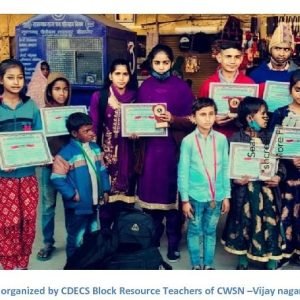
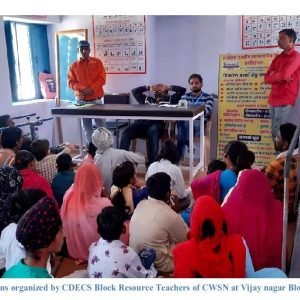
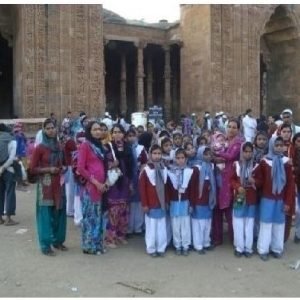
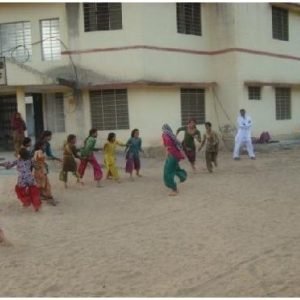
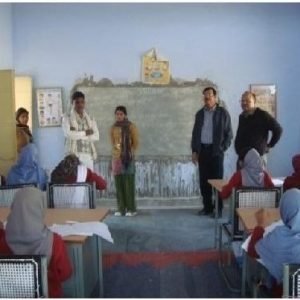
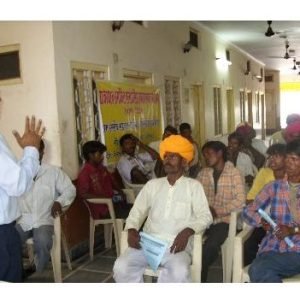
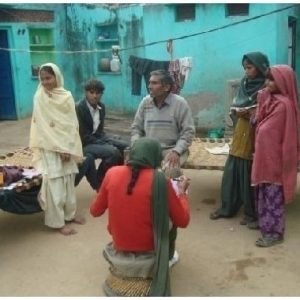
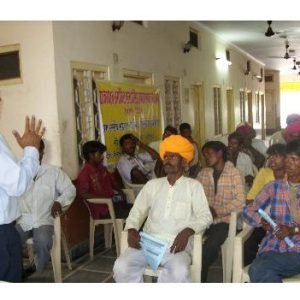

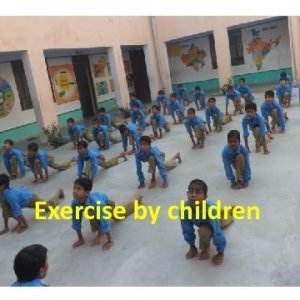
The team of BRT has provided support in the project districts to more than 2800 children
Kasturba Gandhi Balika Vidyalaya (KGBV)
Kasturba Gandhi Balika Vidyalaya (KGBV) is a scheme launched in August 2004 for setting up residential schools at the upper primary level for girls belonging predominantly to the SC, ST, OBC, and minority communities. The scheme is being implemented in educationally backward blocks of the country where the female rural literacy is below the national average. The scheme provides for a minimum reservation of 75% of the seats for girls belonging to SC, ST, OBC, or minority communities, and priority for the remaining 25% is accorded to girls from families below the poverty line.
Initially, KGBV was run as a separate scheme but was merged with the SSA program with effect from 1st April, 2007. With the RTE Act, 2009, coming into force with effect from 1st April, 2010, and the SSA Framework of Implementation being revised to correspond to the RTE Act, the KGBV component of SSA
would also be implemented in the overall context of child rights and child entitlements and in harmony with the spirit and stipulations of the Act.
Minority KGBVs are residential upper primary schools for girls from SC, ST, OBC and Muslim communities. KGBVs are set up in areas of scattered habitations, where schools are at great distances and are a challenge to the security of girls. This often compels girls to discontinue their education. KGBV addresses this through setting up residential schools, in the block itself. KGBVs provide for a minimum reservation of 75% seats for girls from SC/ST/OBC and minorities communities and 25% to girls from families that live below the poverty line. Also, in the State of Rajasthan, as per the guidelines of Department of Education & Literacy, MHRD, GOI, the minorities KGBVs have been setup in the State in the townships having 20 percent and above minority population.
CDECS is working in ensuring availability of qualified experts support and better functioning of KGBVs in Tonk, Ganagnagar, Ajmer, Jaipur, Sawai Madhopur, Karauli, Hanumangarh, Sikar and Jhujhunu districts covering about 27 KGBVs with skilled teachers and support for better faculties and arrangements at KGBVs. The support helped in better functioning of these KGBVs for the purpose it has been established.
